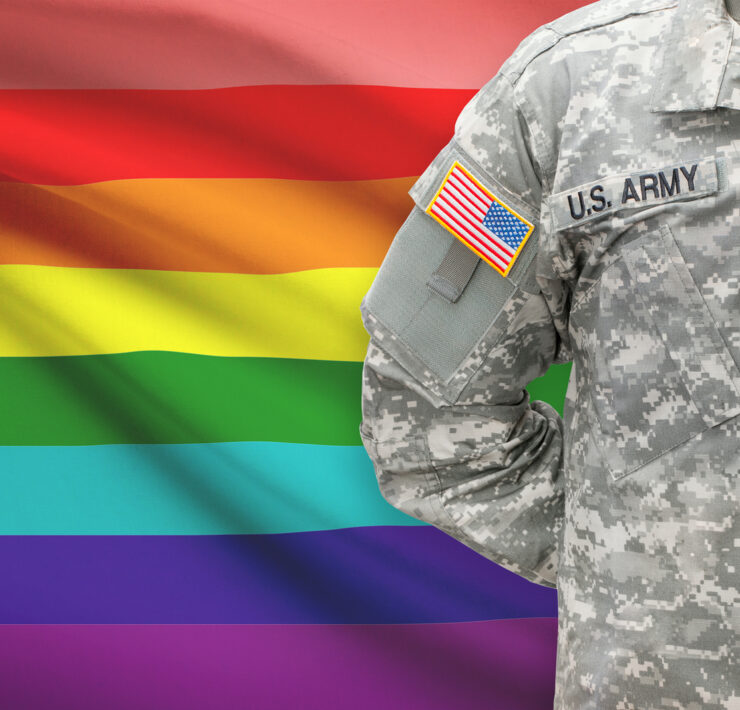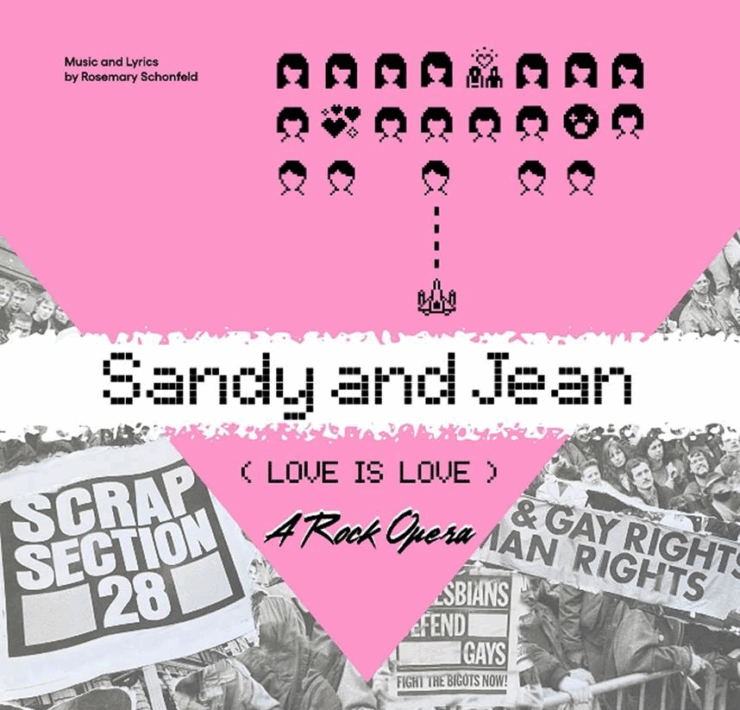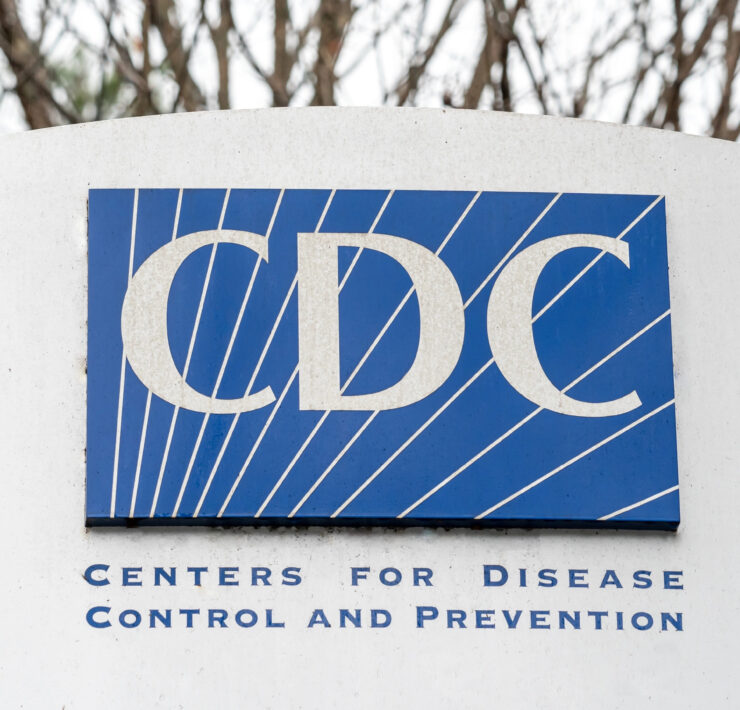Sherry Cola: Representing the Future of Asian Entertainers
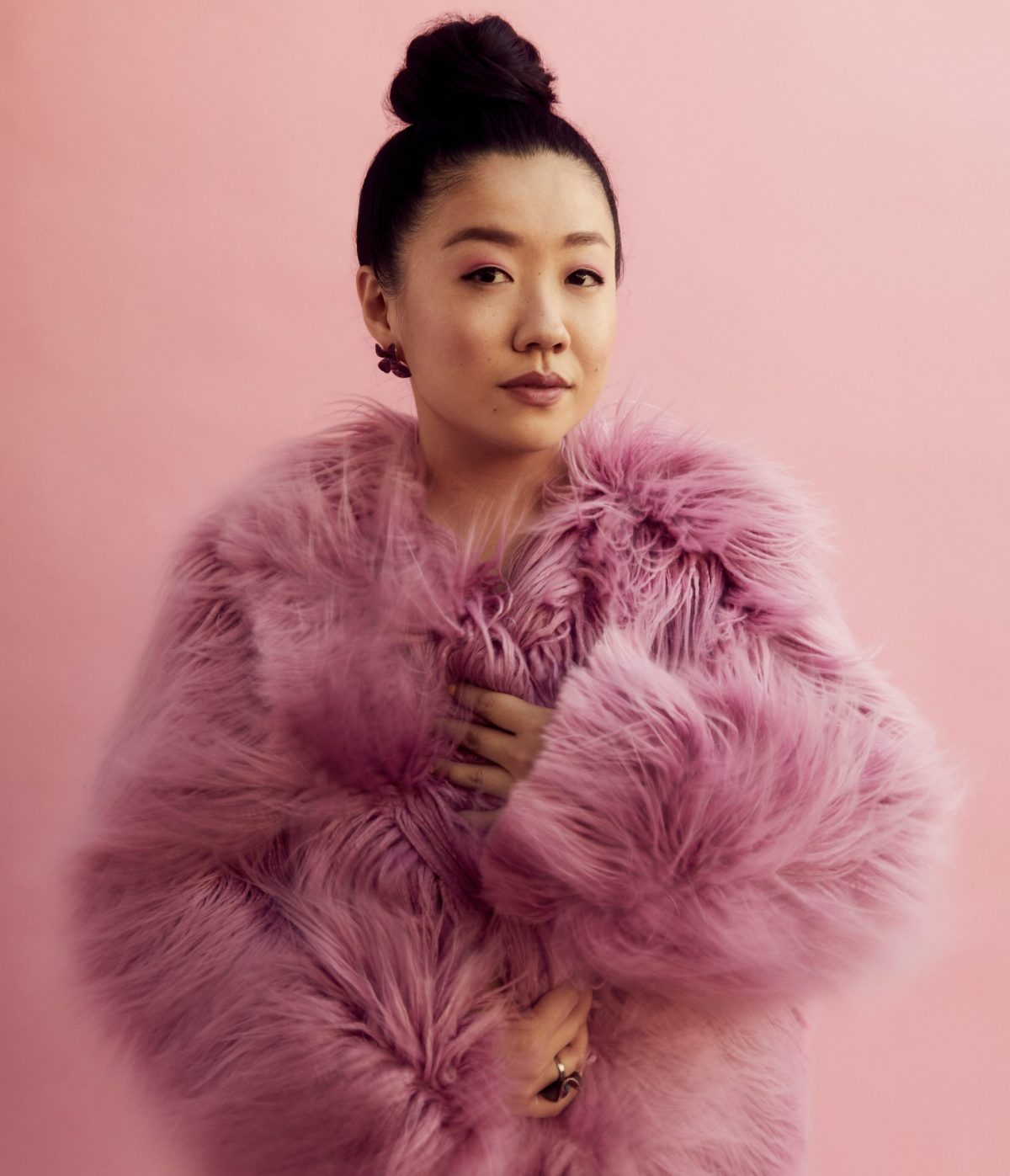
Denny Patterson is a St. Louis-based entertainment and lifestyle journalist…
Considered a “Fresh Face” at the world-renowned Laugh Factory and “One to Watch” by People Magazine, Sherry Cola is a rare gem of an artist who can be both funny and moving.
From a young age, Cola has always been an entertainer who evoked smiles and laughter from her audiences. However, little did she imagine that she would end up being a beloved standup comedian and actress. Appearing in shows like Amazon’s I Love Dick and TNT’s Claws, Cola truly made a name for herself playing Alice Kwan for three seasons in Freeform’s hit series Good Trouble, a drama that excels at capturing life in your 20s while touching on timely topics such as Black Lives Matters, LGBTQ rights, and gender bias in the workplace.
Outside of entertainment, Cola is not just about achieving goals, but she aims to uplift herself and the Asian community. Breaking away from the common stereotype that Asian people are timid and demure, Cola uses her loud and infectious voice to make a difference.
OFM had the opportunity to catch up with Cola and talk more about Good Trouble, how her character opened up conversations with her and others about queerness, upcoming projects, and why it is taking so long for Hollywood to take Asian entertainers seriously.

Let me begin by asking you about Good Trouble. Episodes for the second half of season three are starting to premiere. What can audiences expect?
Representation like no other! Good Trouble is the perfect TV show. I don’t know how else to describe it. Without spoiling too much, my character is telling stories that I did not see growing up. These stories have just been missing my entire life, and the fact that I get to portray a character and show this slice of life through the queer Asian female lens, it means the world to me.
I want to challenge everyone to name one other TV show right now that portrays love between two Asian women. That is what Good Trouble is doing for the community. I feel so proud to tell these stories and shine a light on this real human experience. The queer, Asian, female experience. It is so overdue. From my storyline, we are continuing to navigate Alice finding her voice in comedy and relationships at the Coterie, etc. On top of that, so many juicy things are happening with the rest of the cast. You are not even ready!
First of all, what a blessing it is to be in Season Three. We have done 50 episodes total now, and it is just a TV show that we are all proud of, all a fan of, and it touches on tough conversations and topics. Clearly, Good Trouble has been ahead of the game, period. Every character is so authentic and fighting for something, and that is the human experience. That’s why it is so raw. It’s funny; it’s sexy; it’s edgy; it’s serious; it’s deep, and it’s insightful because it’s real.
You would say the authenticity of Alice is what you enjoy the most about playing her?
Absolutely. There is so much overlap between Sherry Cola and Alice Kwan in terms of queerness, Asianess, femaleness, and this character has helped me find my voice in real life. It has liberated me and helped me spread my wings. The conversation around queerness has progressed so much in the last three years. I have never felt more proud to be who I am and celebrate all these layers of my identity.
Queer, bisexual, Asian, Chinese American, immigrant—all these things make me whole, and I have never felt so me. I thank Good Trouble. I am not the same person I was before this show. I learned so much about allyship, community, representation, and it is such a powerful show. I am using my voice more than ever on screen and off screen.
You were on a recent episode of Life Out Loud with LZ Granderson and pushed back against misconceptions about bisexuality, even within the queer community. What are those misconceptions?
Within and outside of the queer community, I think people always invalidated bisexuality. People would ask me questions like, ‘Who do you think you’ll end up with?’ I don’t know. I definitely do not know. I am attracted to men and women.
My roommates and I recently looked at the Kinsey scale again, just to see where we stand, but that’s the thing. We are so fluid. We are literally human beings, bodies, cells, amoebas, mitochondria just constantly shifting. One day, I will feel more masculine; another day, I will feel more feminine. I think we have realized how everything does not need to be so defined. We cannot have others put us in a box. I think everyone loves to label things, loves to know what’s going on, loves something solid, but we are so fluid. One day, I want to marry Lauren Jauregui, and another day, I want to marry Matt Kemp [laughs].
We have got to keep the conversation going about how bisexuality is real and valid. Obviously, it is a part of the acronym, and it has been here for a long time. So many of us have so many identities, just like I said, Asian, female, immigrant, queer, and within that, there are people who are biracial, too. There are so many intersections even within the intersections. Just let people be. Let people be. Ask if you care; ask if you are curious, but at the same time, let people just live out loud. You do not need to define them. If they tell you they are bisexual, except it.
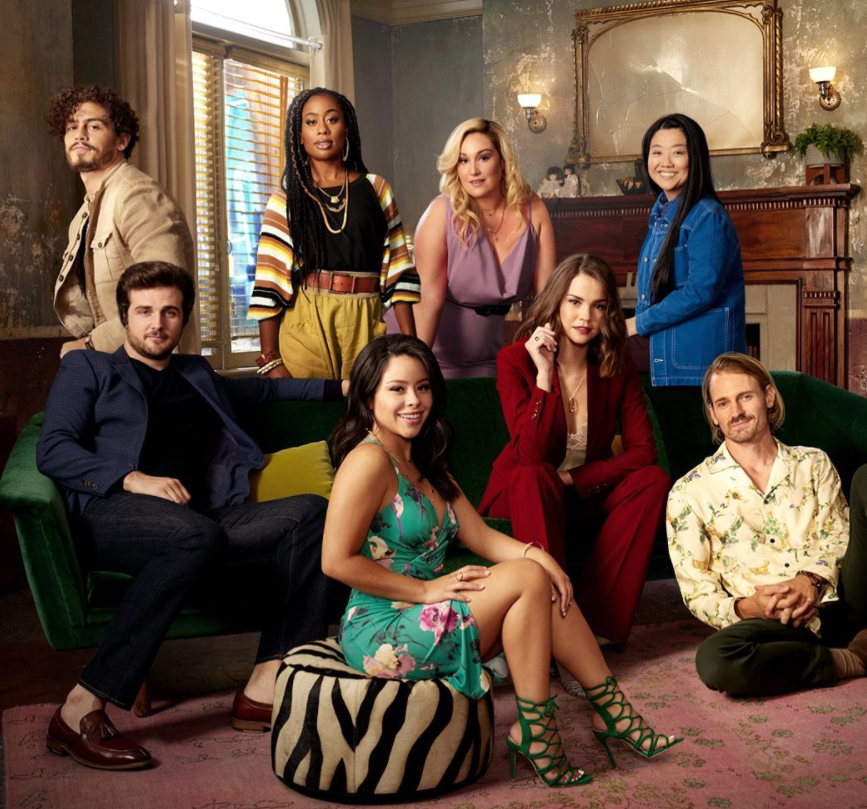
Do you sometimes feel like bisexuality is considered the ugly or forgotten stepchild of the queer community?
I saw a really, really interesting TikTok the other day, and I cannot remember the source, but someone called out the fact that when men are bi, people assume they are gay. However, when women are bi, people assume they are straight. Both of these ideas assume that people are only attracted to men. I was shook. It really is society’s expectations and heteronormative ideas. It is very interesting, but I think we are trying to shatter those norms. Those BS stereotypes and all the things that were the foundation. We are breaking those rules. There are no rules. We can bend gender. We can do anything we want at this point because that is the point we have gotten to.
It is cool to kind of preach that and just be yourself. Live for yourself, embrace, and celebrate who you are, even though it is different from what has been. I think, in the queer community especially, we are really exploring outside of the box, which is beautiful. With bisexuality, it is one of those things. Like I said, people always discredited it or thought it was just a phase. It’s this quick bridge between being straight or gay. No, it is fully valid. I cannot tell you how much I love men and women simultaneously!
You got your break in television in 2017 with Amazon’s I Love Dick. Have you always wanted to pursue a career in entertainment?
In high school, I did a bunch of things. I hosted the talent show; I made funny videos in the film club I was in, and I was always passionate about performing and comedy, but to be honest, I think it was the lack of representation that kind of discouraged me. Like, Jackie Chan and Lucy Liu exist, I guess there’s no room for me. We were brainwashed. We were truly brainwashed into thinking that there was not space for everyone in my community. It felt like too much of a gamble, and especially being an immigrant, that foreigner feeling hardly ever fades. So, as a teenager, I thought to myself, Hollywood is for Americans. I truly thought that, and I just didn’t bother pursuing it wholeheartedly.
In seventh grade, I remember getting recruited at a kiosk for this acting school that was clearly a scam. It was, like, in like a banquet hall at the Pasadena Hilton Hotel, and I made my parents pay for a thousand headshots. I still have them! So, I was always passionate. I was doing things on Vine when that was a thing, but I did not actually pursue stand up, acting, etc. until 2016. I have a background in radio, and right before I officially did stand up and started being on TV, I was on air at 97.1 FM here in L.A. Carson Daly actually gave me my first big break.
So, I Love Dick happened, and it just kind of happened, with of course, the love, support, and hunger of my team. My first day on set, like, Kathryn Hahn was right there. Kevin Bacon was right there. Joey Soloway was right there. I was like, this is where I belong. Why have I not been doing this since I was 18? Then, suddenly, they want me back. Suddenly, they are giving me lines. Suddenly, I have a whole scene with Kathryn Hahn. Suddenly, we are in Marfa, Texas shooting the rest of the season. I’m like, oh my goodness.
This is the creator of Transparent. This is Kevin freaking Bacon. This is Kathryn Hahn, who is hysterical beyond belief. I was sitting with her on the cast chairs one day talking about We’re the Millers, which I think is one of the funniest movies. Like, what is life? Being on a TV set is home. After that, I did a little more, but not too much. I did this MTV unscripted show that was more comedian based. Just games with celebrities and things.
For about a year, I did not book much, but then I did Claws on TNT. Around seven episodes, went to New Orleans, and shot with Niecy Nash and Suleka Mathew. That show had iconic girl power. Then Good Trouble, which is my biggest role thus far. Being a series regular on a show that is so powerful, impactful, and important. I have been busting my ass. At the same time, I am doing standup too, using my voice in every way that I can for the community. I want to do it all! It has been a long time coming, and it is all happening at the right time when it is supposed to.

Why do you think Asians are still not being taken seriously in Hollywood?
For a long time, I don’t think they knew where to put us. We went from Chinese Exclusion Act, being mistreated in this country, Japanese internment camps, and being seen as the enemy to, suddenly, the model minority. Talk about extremes! They did not know where to put us and they did not know how to define us because we were foreigners and maybe didn’t speak the language or whatever. The way Hollywood portrayed us on screen was disrespectful and singlehandedly contributed to the hate crimes. I will always say that because we were the punchlines and stereotypes for so long. Sometimes, I saw the camera pan to an Asian person, and that was the laugh. We just swallowed it. We were like, you know what, we are happy to be here, and we are grateful for any opportunity that we were down to settle for the least.
Because America saw us as that on screen, they did not take us seriously in real life. We were seen as easy targets. We were seen as insignificant. Hollywood representation is everything, and that is all people consumed. TV, movies, music, books, whatever, and we were essentially put in the backseat for so many years. There are so many factors. There was the stereotype of us being submissive, silent, not wanting to rock the boat, swept things under the rug, let things slide, etc. I know that is not the case, but because people believed that so heavily, we may have even given into it.
I am sometimes guilty of it as well. Sometimes, I am like, it’s not worth it. It’s not worth the fight, whatever. Now, more than ever, I am speaking up and speaking out, honey. I am using my damn voice, and I will not settle for less. I am so fired up. I will not rest until my community feels seen, and I feel that fire throughout the entire community, which is very beautiful. The facts are facts.
Joy Luck Club came out in the 90s. Twenty-five years passed until a big studio, all-Asian cast film came out. Crazy Rich Asians in 2018. That is my entire upbringing where no one thought we deserved to be the leads. I mean, what the hell? How are we okay with this? Finally, because of this last year-and-a-half, this bizarre year, so many things contributed to us now fighting for what we deserve. We are having conversations now that are so overdue. Conversations that we have had in the past, but now more than ever, the community is also stronger than ever. We are empowering each other, we are uplifting each other, we are throwing competition behind us.
I do come with this optimistic point of view, but of course, I wasn’t in the industry 20 years ago when people were forced to elbow each other to the top, which is why I always recognize the trailblazers. The Sandra Oh’s, the Lucy Liu’s. I know they went through worse. I am pretty sure the roles were so problematic back then and the things they had to do in audition rooms were horrible. Now, here I am acknowledging that, truly respecting that, and honoring that. I am so grateful to be in the industry at this time, and I just hope to see a major change.
There has been some progress in the last few years, but still, we have movies like Minari and The Farewell that were critically acclaimed, but these award shows were putting them in the foreign category. Minari was produced by Brad Pitt. Like, how American can you get? Yet, foreign category because they are speaking Korean. It’s the American immigrant experience. That is what this movie is about, but what do we need to do to be taken seriously as people who belong here in this country and this industry? So, having these conversations more and more this year and the ripple effect of the entire Asian AAPI community banding together and fighting for what we deserve. It is a beautiful thing, and I cannot wait to see the bright future ahead of us.
You are set to voice a main character in Paramount Animation’s upcoming feature, The Tiger’s Apprentice. What can you tell us about this?
I cannot reveal my character, but I will say, this is a powerful cast. This is just a dream cast. Sandra Oh, Henry Golding, Michelle Yeoh, Bowen Yang, Leah Lewis, Tan Khen Hua, Brandon Soo Hoo, it’s just popping. And me! Like, what? What just happened? How did I stumble into this room? It is such a fun story because it is based on a trilogy of books by Laurence Yep, and it follows this little boy’s journey with the mystical animals of the Chinese zodiac.
It is culturally specific, also a universal story, which is all we want to do as people in the AAPI community in the industry. All we want to do is highlight the fact that we have a unique narrative, but at the same time, prove that we are relatable human beings. Like, we actually just exist as people on top of having something special to offer. On top of having this special point of view. I am really excited. I have already done a couple of sessions for it, and there’s some other stuff up my sleeve, my love.

What about the recently wrapped production of Sick Girl? Anything you can reveal?
Another secret, but hopefully, we will see the light of day very soon! Nina Dobrev, Stephanie Koenig, and Haley Magnus—that was a squad. That was a girl squad. Hysterical movie, truly, and I think it is on the cusp of seeing the light of day.
As a comedian, do you believe there are some topics that should not be joked about?
It all depends on how you do it. Some topics can be talked about in a lighthearted way. I wouldn’t say, you can joke about it. I would say, you can talk about it in a lighthearted way or bring light to a heavy topic. For example, after the Atlanta shooting, first of all, I was devastated that night. The next morning, I posted this poem. This spoken word that was very raw and honest about how I felt and the AAPI experience in this country, etc. We were all going through it, we were trying to process, we were all trying to express ourselves as a community, and a couple of days later, I had a standup show.
I thought to myself, I have to talk about this. Like, I have to. This weighed heavily on my mind, but I’m like, wait, I am there as a comedian. I’m supposed to warm up the crowd, I’m supposed to make people laugh, I’m supposed to set the tone. Is this too serious off the top? No, I have to talk about it. I have to use my platform; I have to use the stage. I cannot let it go to waste. Then I’m like, if I talk about it, it has to be the perfect joke. This is not something you just casually throw out. So, it was very conflicting for 48 hours. Do I talk about it or not?
I ended up talking about it at an angle that worked, and the conclusion is, yes, if you have a voice, you absolutely have to use it. Especially if you have a stage that might enlighten the audience. I am pretty sure half of the audience did not even know about the Atlanta shooting. I am positive, and the good ones probably Googled it after.
That’s the thing about comedy. It is truly a superpower. It is truly a way to change someone’s perspective. The audience is walking away laughing, chuckling, but they actually learned something. They are leaving with a new perspective on the Asian experience. They are leaving with a stereotype broken. That’s the thing about comedy. So, I think nothing is off limits, depending on how you do it. It must be tasteful. I have seen some stuff that is just not cute. If you are going to do it, do it right.
What more do you hope to accomplish with your platform?
I want to do it all, on and off screen. I want to be someone who inspires the next generation. Just like Margaret Cho did for me, and I got to share the screen with her recently on Good Trouble. I also got to share the stage with her the other week, a standup show. I could cry right now just thinking about the full circle of it all. She was the original bisexual, Asian, female standup comic, and I was watching her when I was younger. Seeing her be so bold, unapologetic, and break society’s BS definition of what an Asian woman should and should not do, that is how I always wanted to live my life, and I am doing it.
Margaret is so much to work with, and she is an angel of a human. My heart could not be fuller. I see her, and I am so fired up to do the same for the next generation. I plan to do more standup, more acting, and carry my career with intention. I think with every role moving forward, especially since Good Trouble has set such a tone; all we want as AAPI folks in the industry is to do work with intention. What is this story telling? I am happy to do an accent if there is a reason and purpose for it.
On top of that, off screen, using my voice in every way possible. Doing the panels and preaching. People hit me up being like, hey, my interns would love to talk to you. Yes, let’s do it. We don’t even need to do any official business. I’m there. Send me the Zoom link; let’s go. You are my friend, and I would love to spread the word in any way I can. Share insight in any way I can. I just want to fully embrace and celebrate this bisexual, female, Chinese American, immigrant perspective and show that even if society is rooting against you, you can prevail. You can show them what makes you different is what makes you shine.
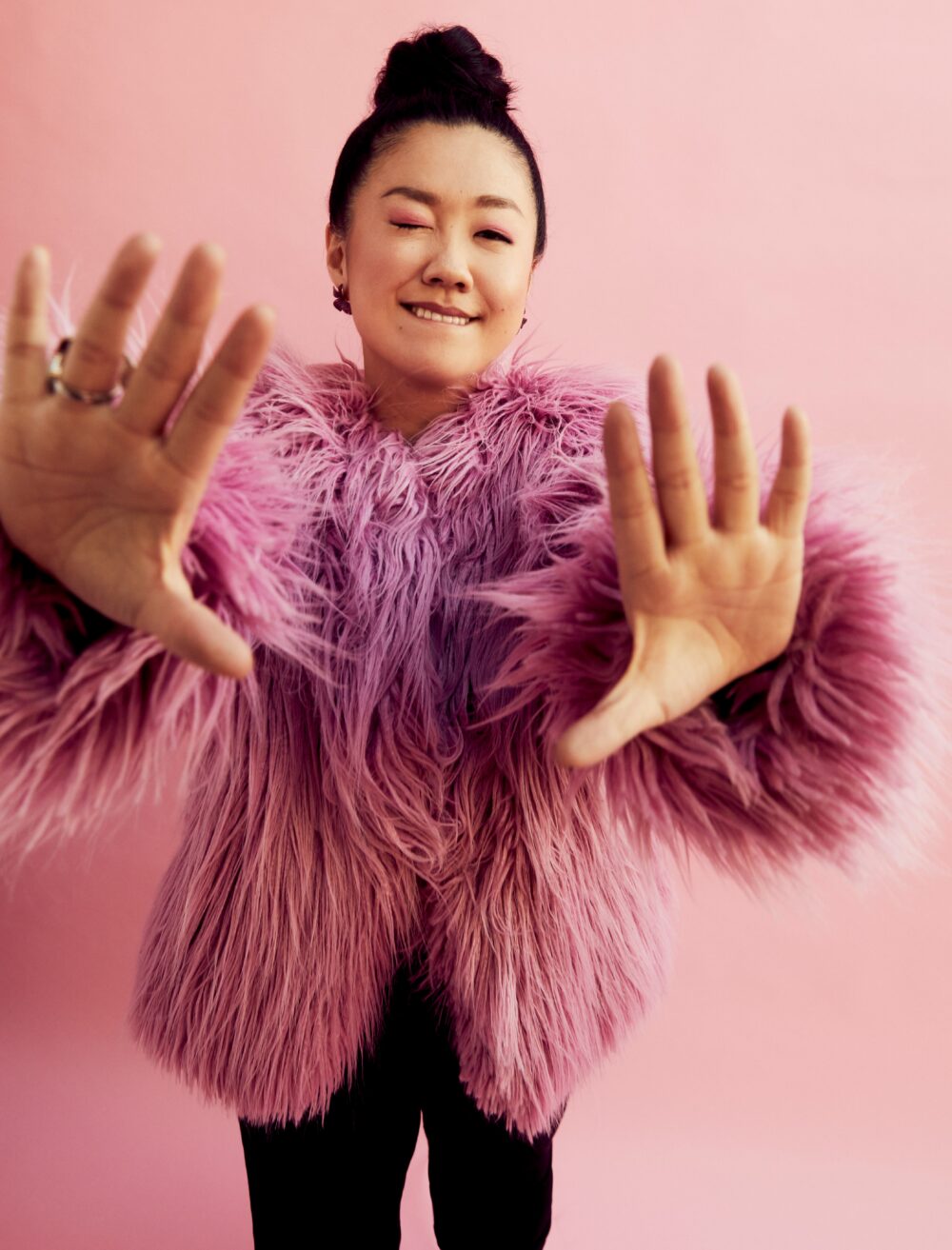
Before we wrap up, are there any other upcoming projects or anything else you would like to mention our plug?
To be honest, everything is too top-secret right now [laughs]. I can’t mention anything right now, but follow me on social media to stay up-to-date!
Connect with Cola by following her on Instagram. New episodes of Good Trouble premiere Wednesday on Freeform, and past episodes are available to stream on Hulu.
Photos Courtesy of Jonny Marlow and Social Media
What's Your Reaction?
Denny Patterson is a St. Louis-based entertainment and lifestyle journalist who serves as OFM's Celebrity Correspondent. Outside of writing, some of his interests include traveling, binge watching TV shows and movies, reading (books and people!), and spending time with his husband and pets. Denny is also the Senior Lifestyle Writer for South Florida's OutClique Magazine and a contributing writer for Instinct Magazine. Connect with him on Instagram: @dennyp777.





